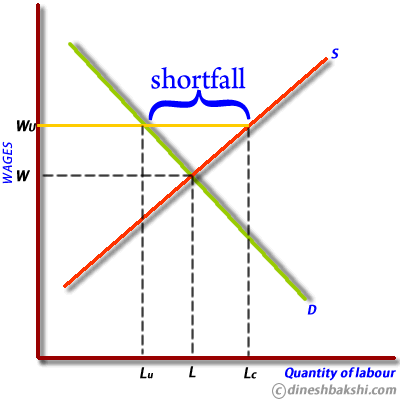Role of trade unions in wage determination
In many markets the demand and supply of labour are affected by the actions of the trade unions and the government. Such interventions produce ‘imperfections in the labour market’.
Role of trade unions
A trade union or labour union is an organization of workers who have banded together to achieve common goals in key areas such as wages, hours, and working conditions. The trade union, through its leadership, bargains with the employer on behalf of union members and negotiates labour contracts with employers. This may include the negotiation of wages, work rules, complaint procedures, rules governing hiring, firing and promotion of workers, benefits, workplace safety and policies.
Affect of Trade unions on Labour Market

Looking at this graph,
At the equilibrium wage, the quantity of labour employed is L.
A strong trade union can force up wages to Wu.
Number of jobs offered by employers falls to Lu.
At this wage the number of people who would like to work is higher (Lc)
This will lead to a shortfall between who can actually want to work and those who can actually work.





